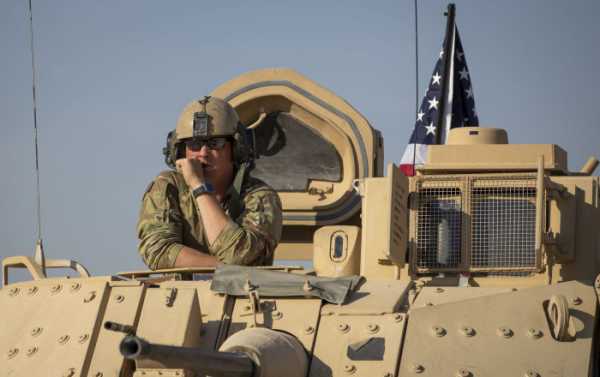
On 22 April, the foreign ministers of Russia, Iran, and Turkey held a trilateral video-conference on the situation in Syria within the framework of the Astana format. International observers have explained why the group has succeeded in maintaining the balance of interests in the region and what is behind the growing divisions within jihadi ranks.
The Astana group, a trilateral format comprising Russia, Turkey and Iran created in 2017 to tackle the Syrian crisis, acknowledged on Wednesday that the 5 March 2020 ceasefire deal had facilitated the de-escalation of the situation in Idlib, following Turco-Syrian clashes earlier this year, despite Hayat Tahrir al-Sham’s* attempts to obstruct it.
Meanwhile, divisions are growing within jihadi groups in Syria. A week ago, over two dozen militants from Jaysh Maghawir al-Thawra (‘Revolutionary Commando Army’) who were previously deployed in the US-held At-Tanf area surrendered to the Syrian Arab Army. Later, on 20 April, unidentified groups reportedly attacked and destroyed a US military vehicle in Al-Hasakah governorate. At the same time, in Idlib, jihadi militants are deeply split over joint Turkish-Russian patrols on the M4 highway which started on 15 March.
Syrian Militants are Growing Disenchanted With US
Nevertheless, the US has been heavily reinforcing its troops in east Syria in recent months, particularly around Syria’s oil fields, the US veteran notes, adding that Washington is “unlikely to easily give away its last card for leverage in forcing regime change in Damascus via political and economic blackmail”.
At the same time, the US cannot rely on any of its beaten proxies, as the Syrian Army made its advances over the entire Syrian geography including the Idlib governorate, believes Christopher Assad, a Canada-based political analyst of Syrian origin, stressing that eventually all foreign troops will have to unconditionally withdraw from all Syrian territories, especially those whose presence is illegal.

A U.S. soldier, left, sits on an armored vehicle behind a sand barrier at a newly installed position near the tense front line between the U.S-backed Syrian Manbij Military Council and the Turkish-backed fighters, in Manbij, north Syria, Wednesday, April 4, 2018.
Jihadists Split Over Russo-Turkish Patrols
Meanwhile, in Idlib, various jihadi factions are divided over Turkey’s joint military patrol of the strategic M4 highway running from Latakia to Saraqib, where it intersects with the M5. Al-Monitor cited local sources as saying that Hayat Tahrir al-Sham* and allied militant groups organised sit-in protests to block the M4 road. However, Turkish riot police and Turkish-backed militants eventually dispersed the sit-in.
Though Turkey dispersed the protests organised by jihadi provocateurs, Ankara has yet to halt military support or daily supplies to militants in Idlib, argues the US military veteran. He notes that Ankara has taken no action to “disarm or remove the jihadi militants south of the M4 as required by the so-called Sochi 2.0 agreement”. Furthermore, these jihadists still continue to launch attacks against Syrian and Russian forces and Syrian government controlled towns and settlements in and around Idlib, he adds.
Previously Ankara has repeatedly come under criticism from Moscow and Damascus for not fully observing the 2018 Sochi agreements by failing to separate moderates from radicals in Idlib and disarm them. However this time Turkey appears to demonstrate commitment to the 5 March truce deal, says Ghassan Kadi, a Mideast expert and political analyst of Syrian descent.
“Let us not forget that the events of the days leading up to the 5 March meeting, Erdogan tried very hard to go there as a victor who would dictate his own terms, but facts on the ground painted him in a corner and put him in the position of one who would be asking for a face-saving deal; and the 5 March agreement was just that”.
In this light it is not surprising that Ankara reined in jihadists who were trying to hinder joint Russo-Turkish M4 patrols, echoes Christopher Assad. According to him, the performance of the Syrian forces in Idlib and Russia’s resolve to maintain security and order in the region could have convinced Ankara to exert some pressure on militants in Idlib.
Astana Group Successfully Maintains Balance of Interests
Russia, Turkey and Iran have not successfully balanced their interests in Syria following the recent escalation and then “ceasefire” on new lines in Idlib, Sleboda believes, adding that Washington’s attempts to woo Turkey amid the Turco-Syrian clashes and alienate it from its Russian and Iranian allies have failed.
Erdogan’s biggest nightmare is the rise of Kurdish nationalism within Turkey, and his American allies made it clear to him that this is not an issue of concern to them despite his repeated pleas for support, echoes Ghassan Kadi.
“Erdogan’s partnership with Russia on the other hand puts the Kurdish issue in the hands of Russia and Syria to deal with”, he says. “It is possible that Erdogan has allowed his nationalist interests to come before his religious aspirations of Muslim leadership. After all, he has already tried the latter and failed”.
For his part, Christopher Assad, highlights that the war in Syria is still continuing, adding that the US and its Western allies have been waging this war, either openly or covertly, since the 1950s imposing trade, economic and financial sanctions on the country.
The views and opinions expressed in the article do not necessarily reflect those of Sputnik.
Sourse: sputniknews.com






